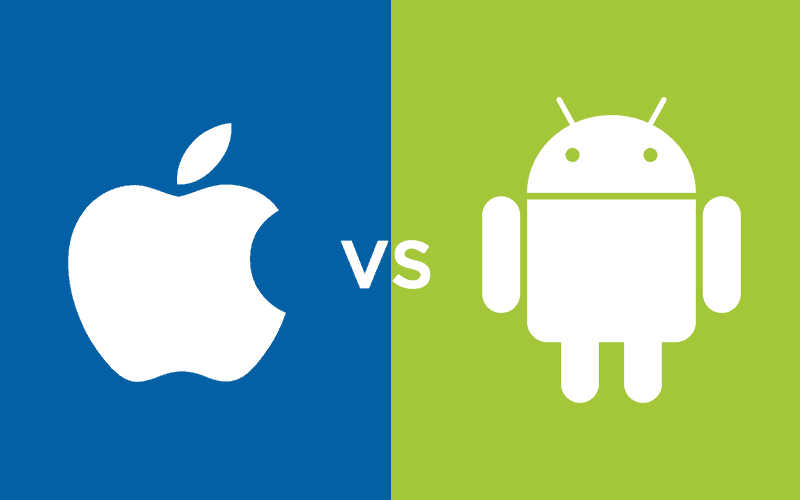Android vs iOS | HackThatCORE
Android vs iOS | HackThatCORE

Image Source: GetVoIP
iOS(formerly iPhone / iPad OS) is a mobile operating system developed by Apple initially for the iPhone, but later also used on the iPod touch and iPad. From 2007 to 2010, it was called "iPhone OS". It is derived from Mac OS X. iOS has 4 layers: Core OS layer, Core Services layer, Media layer and Cocoa Touch layer. The software covers an area of 2500 MB in the device. Because of the iOS operating system structure, applications can not be installed anywhere except Apple App Store and iTunes. The founder is Steve Jobs.
Android is a free, Linux-based operating system developed by Google and the Open Handset Alliance for mobile devices. Although the system is open source, a small but very important part of the code is closed by Google. The faster and faster the system is being used by many popular brands, and the more ads it gets to reach the more people it is because it is free by Google. The Android app's supported app extension is ".apk". On November 5, 2007, Android announced that it established.
iOS / iPhone
- iPhone boasts over 230,000 apps and is growing.
- Push notifications and Individual notifications on updates.
- Good internal memory and you have choices of different internal memory sizes.
- No external expandable memory, but a huge internal one.
- Artificial Intelligence type dictionary type dictionary. iPhone learns as you type.
- Single e-mail app and I must say an efficient one.
- All apps are aesthetically gorgeous.
- iTunes sync model, just like iPods.
- One button - clear function.
- Text editing operations (cut, copy and paste) act the same irrespective of the app.
- Apple Charger.
- iPhone can support at least one major OS Update before Apple launches a non-compatible or higher configuration OS.
- No replacement battery.
Android
- Android has about 90,000 apps currently
- System wide notification (non-modal) and other application notifications in cascade windows.
- Limited internal memory. Lots of apps in the internal memory will eventually make your phone less 'smart'.
- External SD card can be inserted to store photos, media, etc.
- Google Voioce integration and user editable dictionary.
- Separate apps for Gmail and other mail.
- Visually crippled non-Google apps.
- Android has the 'plug and transfer' feature.
- The menu and back buttons don't always do the same thing.
- Inconsistent text editing options.
- Micro USB charger that is something that is readily available in the market.
- Non-upgradable OS.
- Removable and Replacable.

Comments
Post a Comment